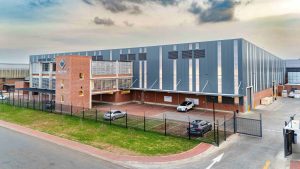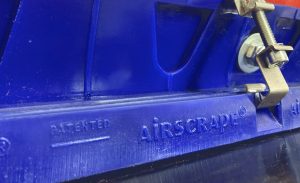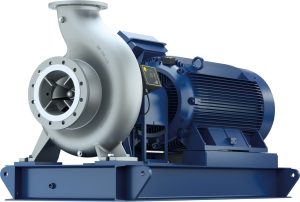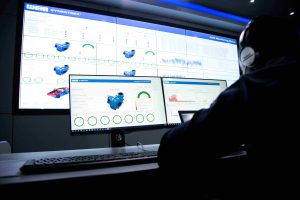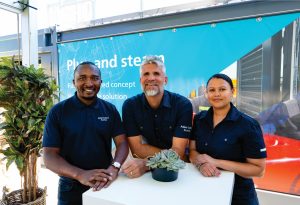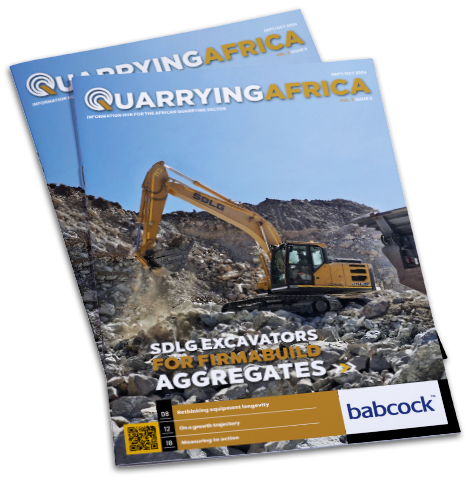Established in 2009, WEG Africa’s Ghana entity has, over the past 15 years, evolved from a parts service operation into a fully-fledged branch offering a complete suite of WEG’s industrial electrical and electronic technologies. A growing network of Value Added Resellers (VARs) has enhanced the branch’s capacity to deliver tailored and responsive solutions to its diverse clientele in West Africa.
In its 15 years of existence, WEG Africa’s Ghana branch has placed customer success at the centre of its operations. To meet diverse customer needs, the branch offers customised solutions that speak directly to market requirements in West Africa.
Foster Yeboah Owusu, regional manager – West Africa – Sales at WEG Africa, says VARs play a pivotal role in ensuring customer satisfaction. To this end, the branch has a total of eight VARs in key markets such as Nigeria (two), Ghana, Côte d’Ivoire, Burkina Faso, Mali, Senegal and Mauritania.
As a commercial office for WEG Africa, the Ghana entity can offer a complete range of WEG solutions across the different product families – industrial electric and electronic equipment, power generation and transmission and commercial and appliance motors. Currently, however, the facility has a major focus on industrial electric and electronic equipment, catering largely for oil and gas, and mining markets.
The main product line includes electric motors, variable speed drives and controls, softstarters, switchgear, geared motors, distribution boards and customised E-houses, among many other products. This is complemented by a selected range of power generation and transmission products such as oil-cooled and dry-type transformers as well as mobile substations.
Owusu reiterates the importance, in a culturally diverse region of 16 countries, of understanding the unique infrastructural challenges and regulatory requirements in each market in order to develop suitable products. For example, he says, several countries in West Africa have varying levels of grid power infrastructure and voltage compatibility, which makes product customisation and adaptation a major requirement to meet unique market needs.
Armed with the globally renowned WEG product offering, coupled with a strong support regime that entails technical support, training and high spare parts availability, WEG Africa’s West African business has seen substantial growth in recent years. The growth, says Owusu, has largely been driven by a thriving West African mining sector.
“We have in recent years executed some flagship projects in the region,” says Owusu. “For example, between 2019 and 2020, we supplied and commissioned major electrical equipment for a large oil and gas project. This comprised six WEG electric motors – four 9,5 MW and two 7 MW units. Of note is that this project was successfully executed during the Covid-19 pandemic.”
Commenting on emerging trends in the market, Owusu highlights the accelerated move towards energy efficient solutions. In Ghana, for example, the government has introduced Minimum Energy Performance Standards (MEPS) for about 20 different electrical products including transformers, electric motors and air conditioners, amongst others.
As a key industry stakeholder, WEG Africa was part of the electro-mechanical technical committee that prepared the standards on which the MEPS for electrical motors are based. Through this process, the government of Ghana has set MEPS for electric motors at IE2, up from IE1. The industry, however, is already moving to IE3 and IE4 efficiency standards. Given that electric motors consume 50% of global energy, Owusu says the adoption of higher MEPS is a welcome development. Making electric motors more efficient not only reduces power consumption, but also minimises carbon emissions and improves sustainability.
“Governments in West Africa have a big focus on sustainability and environmental management. On the back of rapid industrialisation, there is a growing renewable sector in the region. To cater for this market, we intend to expand our offering with WEG’s other existing solutions such as solar systems, hydro and wind turbines,” says Owusu.
In addition, says Owusu, there is a lot of interest in increasing partnerships and collaboration. “The plan is to have local service partners in at least every country in the region to ensure faster parts and service turnaround times for our customers,” he concludes.

